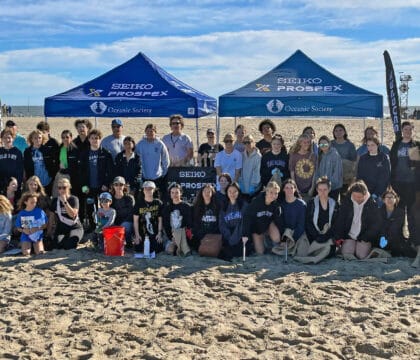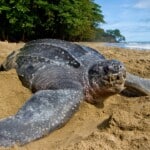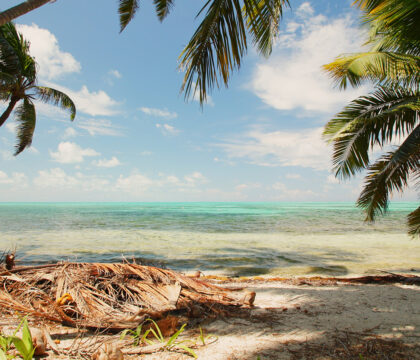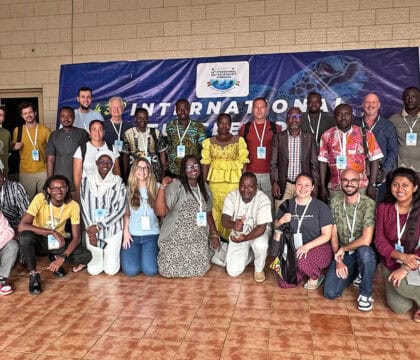December 29, 2015 • News Announcements
Oceanic Society has been involved in conservation and voluntourism in Midway Atoll National Wildlife Refuge (MANWR) since 1997. Over that time, our travelers have become acutely aware of the impacts that plastic pollution accumulating in our oceans has on wildlife. In spite of its remote location in the Northwest Hawaiian Islands, Midway Atoll has become the “poster child” for the plastic pollution problem. As the atoll’s primary residents, and with feeding areas alongside the oceanic gyres where plastic pollution accumulates, Laysan and Black-footed Albatross are seemingly the most impacted. These seabirds ingest some of the highest amounts of plastic of any seabird species. Adult albatross consume plastic trash while foraging out at sea and unknowingly pass it on to their own developing chicks. The chicks are not able to regurgitate objects, so many of them basically become repositories of plastic waste and a “test tube” for the impacts of our increasing dependence on single use, “disposable” plastic.
To date we do not have a full understanding of what impacts this plastic may be having on the overall albatross populations in the North Pacific. However, most people agree that on seeing, either in person or in photos, any amount of plastic pollution ending up in these majestic birds and their vulnerable chicks is something that we, as a global community, should take responsibility for, regardless of its impacts. Just as 100% of the albatross chicks on Midway and Kure Atolls have plastic in them, 100% of visitors who depart these grand wildlife sanctuaries, leave wanting to do more to help remedy this terrible problem.
It is with great excitement that we launch our Adopt An Albatross program in 2015, with the following goals:
- To address the public’s concerns about possible impacts of plastic pollution on North Pacific albatross populations by supporting more successful, long-term habitat improvement at albatross breeding sites, and by supporting field-based albatross research;
- To develop a program that will engage people to become more aware of their role in the plastic pollution problem;
- To generate greater attention to the global issue of plastic pollution in our oceans, alongside a fact-based awareness of the possible impacts to seabirds.
The public has already begun to adopt Laysan and Black-footed Albatross chicks on the Oceanic Society website at: https://www.oceanicsociety.org/adopt/adopt-an-albatross, and enthusiasm for the Adopt An Albatross program is building.
Each adoption directly aids albatross population resiliency by supporting both habitat restoration programs as well as monitoring efforts on their key breeding colonies in the Northwest Hawaiian Islands. Additional support will go towards education and outreach programs and toward research examining how marine pollution may impact albatross and other seabirds. The work on the ground is being done by our partners, Friends of Midway Atoll and Kure Atoll Conservancy, who will benefit from each adoption. With a generous initial pledge from Spiritual Revolution Yoga (who are producing a PVC-free “Soaring Albatross” yoga mat that directly supports our Adopt An Albatross program) we are ready to start creating an army of “Albatross Ambassadors.” By adopting an albatross you will receive monthly updates over the course of the breeding season, as well as materials to help you educate others about the problem.




